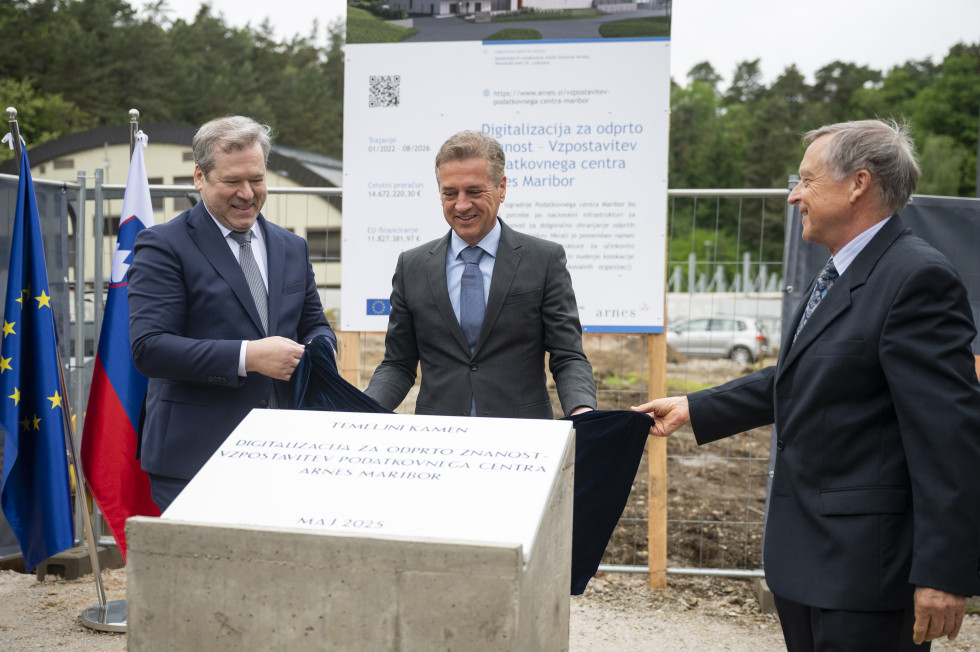Prime Minister Golob: "The data centre marks a symbolic beginning of a new era in Slovenia's development"
On this occasion, a letter of intent titled "Use of Excess Heat from the ARNES Data Centre and Supercomputer in Maribor" was also signed. The signatories to the letter note that it makes sense to use the excess heat generated by the supercomputer and the data centre for heating via the hot water distribution network, which is owned by the Municipality of Maribor and operated by Energetika Maribor.
In a press statement, Prime Minister Golob recalled that he had already implicitly mentioned the data centre and supercomputer project at the United Nations General Assembly meeting last September. "When I announced at the United Nations in the autumn that the future will be shaped by countries that are able to combine science, technology and solidarity, I had this very project in mind," he said.
The Prime Minister went on to highlight three key components of the data centre project. "We are bringing the data collected from different locations together in one place, combining it with supercomputing capacity and an artificial intelligence factory, all while integrating a sustainability component," he pointed out.
Prime Minister Golob also explained the importance of the project's sustainability component. "The project combines clean energy from the Drava River and the use of excess heat to warm the city of Maribor, and this component will make the whole project sustainable," he said.
The Prime Minister described the laying of the foundation stone for the new data centre as an important milestone. "This is a symbolic beginning of a new era, in which the Drava will once again be a driving force in the development of Maribor. This time not through industry, but through knowledge, artificial intelligence and, above all, shaping a better future for the entire country," he concluded.
Following the ceremony, the Prime Minister took part in a discussion on the importance of the data centre, the supercomputer, digitalisation for open science and the Slovenian AI factory for science and society as a whole.
During the discussion, the Prime Minister underlined that the Government has been committed to increasing funding for science and innovation since the beginning of its term of office. "From day one of this Government, regardless of the situation at home or abroad, we have been increasing investment in science, research and innovation," he said.
The Prime Minister went on to elaborate on the long-term vision of investing in the data centre, which will become one of the country's key development projects. He stressed that the location was chosen strategically – on the banks of the Drava River in Maribor – as it allows for the establishment of a system where the excess heat generated by the data centre can be used to supply energy to the local population.
The Prime Minister also highlighted the importance of data obtained from satellites and space. This data enables the development of advanced water resource management systems, which is one of the key areas for the future. Slovenia possesses cutting-edge knowledge in this area, which is why it has the potential to become a leader in sustainable water management.
At the end of the discussion, the Prime Minister stressed that the first results of this Government's investment in science are already becoming visible. "If the country did not have such a well-developed education system and scientific and research infrastructure, these investments would not have been possible. I am proud that we are the first Government to have set the whole knowledge chain through appropriate legislation and long-term funding. We have linked this to GDP and thus ensured a long-term stable source of funding for the creation of new knowledge," concluded the Prime Minister Golob.


